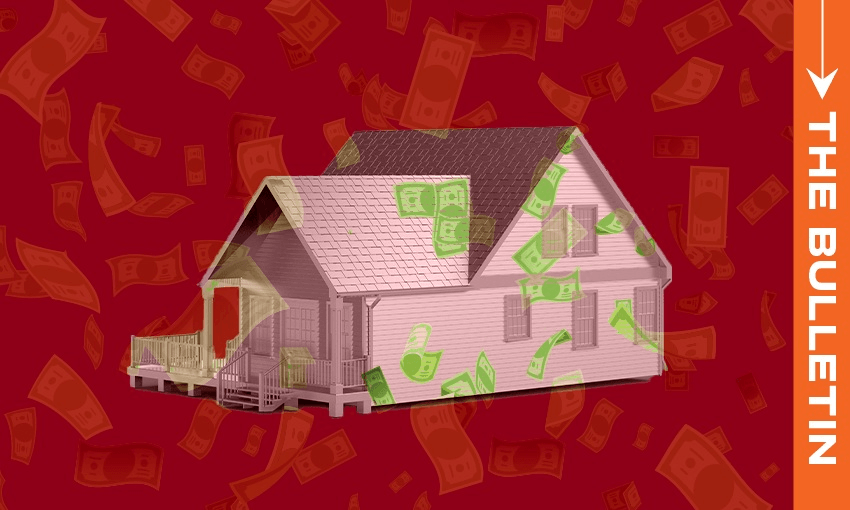New data this morning confirms the end of the recent housing market downturn, but even the low was high. Building consents are down, and rent prices and migration are up, writes Anna Rawhiti-Connell in this excerpt from The Bulletin, The Spinoff’s morning news round-up. To receive The Bulletin in full each weekday, sign up here.
Downturn is ‘officially over’ says Corelogic
Corelogic’s national house price index showed the first rise in property values since March last year, up 0.4% in October and 0.1% over the past three months. That’s prompted the property research firm to call the house price downturn “officially over”. Corelogic data often lags some of the other property data sources because it is collected from completed sales rather than unconditional deals. Its national house price index is also a rolling three-month tracker rather than a month-by-month measurement. Nationally, from the start of the downturn to now, the average loss was $138,000. In Auckland, it was $261,000. Corelogic chief property economist Kelvin Davidson says average values are still almost 25% above the pre-Covid levels of March 2020. The average house value in Auckland is now $1.26m.
High migration to drive prices higher says economist
Westpac chief economist Kelly Eckhold says that while higher interest rates will have some impact on restraining prices, population growth running at a “multi decades high” due to migration will boost demand for housing. Building consent data released by Stats NZ yesterday shows the number of residential building consents continuing to fall, with the number issued for the year ended September at 40,400, a 20% drop on the previous year. Westpac senior economist Satish Ranchhod said the downturn in the building sector was deepening, and consent numbers were likely to fall further. “If I think about the actual amount of construction activity, we’re looking at a downturn that’s probably going to be in the ballpark of about 16%. That’s a very sharp downturn. In fact, the last time we saw something getting that sharp was during the global financial crisis where things fell by about 30%,” he said.
Rent rising and growth outstripping housing supply
interest.co.nz’s Greg Ninness looked at recent housing supply numbers in Auckland, contrasted against migration data. Population growth in Auckland is outstripping the supply of new homes being built in the region. Recent data from Barfoot & Thompson shows average rent in Auckland rising by 4.4% in the September year to $652.93 per week. Average rents were nearly 13% higher than September 2019. Ninness concludes we’re at a tipping point in housing supply and warns of a return to the housing shortages of 2020. The first comment on Ninness’ piece reads, “We love scoring own goals in this country. Self inflicted and preventable.”
Stats NZ labour market data out today
Stats NZ labour market data for the September quarter is out today. By now, we all know the orthodox drumbeats: when employment levels are high, wages rise faster. People have more money to spend, so prices go up and so does inflation. When unemployment is high, the lack of money to spend means that inflation goes down. It is our old mate, the Phillips curve, conceived by New Zealander Bill Phillips. A consensus of bank economists ( paywalled, and is that the collective noun or just an accidentally clever allusion to it by Liam Dann?) is picking that the unemployment rate will have risen. Most are pinning that prediction on high levels of migration.


